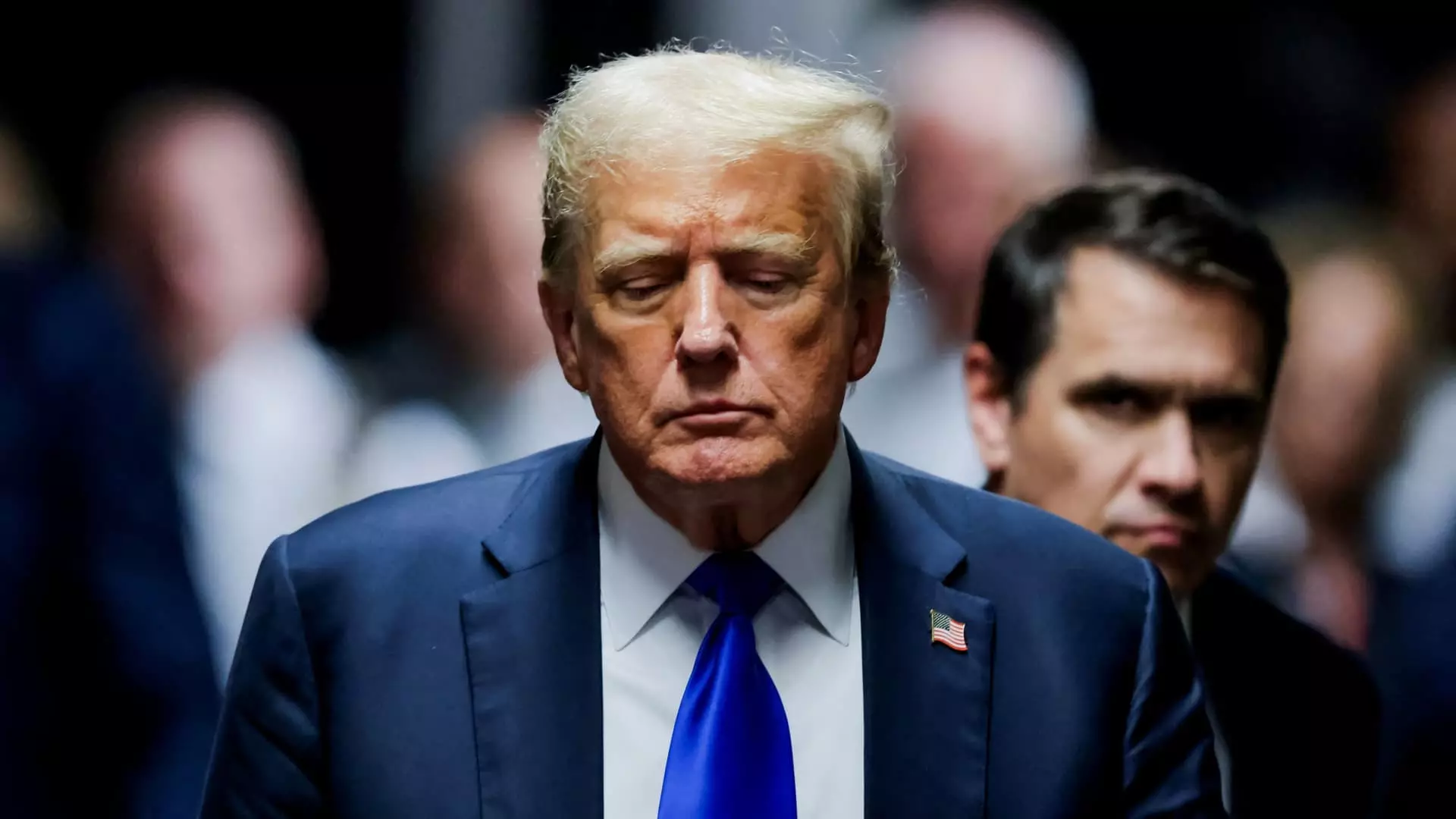In the complex landscape of American law and politics, few cases have garnered as much attention as that involving former President Donald Trump’s recent conviction for falsifying business records. The intersection of legal proceedings and presidential authority is fraught with implications, raising profound questions about the limits of power and accountability. On a notable Monday in New York, Judge Juan Merchan addressed one of the significant claims made by Trump’s defense team regarding the concept of presidential immunity, ultimately denying their request to dismiss the conviction.
Trump’s legal troubles center around a $130,000 payment made to adult film star Stormy Daniels during the frantic lead-up to the 2016 presidential election. This payment, orchestrated by Trump’s then-personal attorney Michael Cohen, was intended to prevent Daniels from sharing alleged details of a liaison with Trump. Following an extensive investigation, Trump was found guilty on 34 felony counts related to this payment and the falsification of business records, marking a historic moment as he became the first former president to be convicted of a crime.
The prosecution’s case relied heavily on testimonies from various witnesses, including former White House employees, which brought forth discussions around the appropriateness of such evidence in a trial involving a sitting or former president. Trump’s defense contended that these testimonies and pieces of evidence could be considered a violation of presidential immunity.
Central to the defense’s strategy was an argument referencing a U.S. Supreme Court ruling that appears to suggest presidents possess a level of immunity concerning actions taken while in office. Trump’s lawyers fervently claimed that the decisions and actions leading to the payments were indeed executed under the umbrella of presidential authority, thereby insulating Trump from legal repercussions. Nonetheless, Judge Merchan dismissed this argument, stating that the nature of the actions—specifically the falsifying of business records—was personal rather than official.
Merchan underscored that the protection of presidential authority does not extend to personal misconduct that breaches state law. His assertion was that no valid legal foundation existed for dismissing the charges based on the immunity argument, thereby reinforcing the principle that accountability persists even at the highest levels of government.
The ruling holds significant ramifications not just for Trump, but for the broader political landscape. It sets a precedent whereby former presidents may not enjoy unassailable immunity, especially in circumstances involving personal, unlawful acts. The legal judgment contributes to the evolving understanding of how presidential actions intersect with criminal law and the limits of executive privilege.
Moreover, as the legal battles continue, uncertainties loom over the eventual sentencing of Trump. The Manhattan District Attorney’s Office indicated a willingness to potentially postpone sentencing until after the presidential transition, but the implications of such decisions stir further debate about justice and fairness in high-profile cases.
Responses from the Trump Camp
In the wake of Judge Merchan’s ruling, Trump’s spokesperson voiced vehement disapproval, referring to the trial as a “witch hunt” and arguing that the legal proceedings stand as a violation against Trump’s constitutional rights and presidential duties. This rhetoric is emblematic of broader narratives within Trump’s camp, framing the legal challenges as politically motivated rather than grounded in genuine legal grievances.
Such responses not only highlight the contentious environment surrounding Trump’s trials but also emphasize the prevailing belief among his supporters that the legal system is being wielded as a political weapon. These sentiments resonate deeply within a segment of the American populace that perceives the judicial system as increasingly politicized.
As Trump navigates the treacherous waters of legal entanglements, the broader consequences for American democracy are unmistakable. The intersection of law and politics continues to undergo scrutiny, with Trump’s case serving as a litmus test for presidential accountability. The ongoing deliberations within the judicial system prompt critical reflections on how power is wielded, the reach of legal protections, and the ultimate responsibility leaders have in obeying the law. The proceedings not only affect Trump’s legacy but also shape public discourse on executive privilege and the function of justice in political contexts, setting a pivotal stage for future administrations.


Leave a Reply